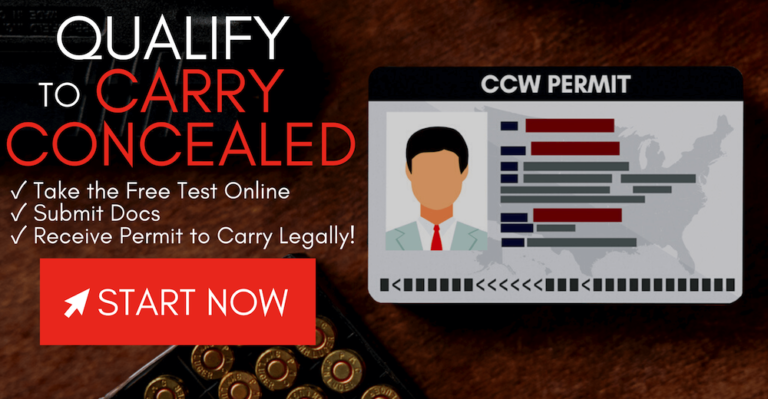Castle Doctrine, often referred to as Castle Law, is a legal principle that allows you to use force—including deadly force—in self-defense when faced with an unlawful intruder.
While nearly every state in the U.S. has some form of Castle Doctrine, the specific protections, limits, and conditions vary widely by state.
Understanding these differences among Castle Law states is crucial for responsible gun owners. At Concealed Coalition, our mission is to educate, train, and empower you to stay compliant while protecting yourself and your loved ones.
What Is Castle Doctrine?
Castle Doctrine is based on the principle that your home is your “castle,” giving you the right to protect it. This law generally eliminates the duty to retreat when facing an unlawful threat inside your residence. However, its application varies:
- No Duty to Retreat: In most states with Castle Doctrine laws, you are not required to attempt escape before using defensive force.
- Extended Coverage: Some states expand the doctrine to include vehicles, workplaces, or other occupied spaces.
- Reasonable Threat: You must have a reasonable belief that the intruder intends to cause serious harm or death.
- Unlawful Entry: The law applies only when someone is attempting to enter your home or space illegally.
Variations Among Castle Law States
Castle Laws differ significantly across the United States. Here’s a breakdown of how they vary:
States with Strong Castle Doctrine Protections
These states offer broad self-defense rights, often extending the use of deadly force to homes, vehicles, and workplaces:
- Texas – Known for extensive self-defense laws, with no duty to retreat in many situations.
- Florida – Combines Castle Doctrine with Stand Your Ground laws, allowing defensive force anywhere you’re legally present.
- Alabama, Arizona, Georgia – Provide robust protections covering multiple locations, such as homes and workplaces.
States with Limited or No Castle Doctrine
Some states apply Castle Doctrine more narrowly or not at all:
- California – Protections are largely limited to the home, and individuals may need to retreat in public or outside their residence.
- Illinois – Similar to California, self-defense rights are confined to the home and don’t extend to most public spaces.
- Hawaii and New Jersey – Do not recognize Castle Doctrine; a duty to retreat applies, even in the home.
Castle Doctrine vs. Stand Your Ground
Castle Doctrine and Stand Your Ground laws are often confused but have distinct differences.
The Castle Doctrine allows individuals to use force to defend themselves in their homes, and in some cases, their vehicles or workplaces, without the obligation to retreat when threatened in these specific locations.
Stand Your Ground laws go further by extending this right to public spaces, eliminating the duty to retreat in more situations. States like Florida and Texas recognize both laws, offering broader self-defense protections.
Why Knowing Your State’s Castle Doctrine Matters
Failing to understand your state’s specific laws can result in significant legal consequences, including criminal charges or civil lawsuits.
These laws outline critical aspects such as when the use of deadly force is legally justified, whether immunity from civil lawsuits applies, and if legal protections extend to locations like vehicles or workplaces.
Since Castle Law states’ regulations vary widely, what is permissible in one state may lead to prosecution in another. It is essential to familiarize yourself with the laws in your jurisdiction to ensure compliance and avoid unintended legal risks.
Understanding Your State’s Castle Doctrine
- Learn Your State’s Law: Castle doctrine laws differ by state, so it’s important to know the rules where you live or travel.
- Check State Statutes: Review your state’s official self-defense and firearm laws for detailed information.
- Get Professional Training: Concealed Coalition offers training specific to your state’s laws to help you stay prepared.
- Stay Updated: Laws can change, so regularly check for updates to remain compliant.
Concealed Coalition’s Role in Training & Education
Concealed Coalition offers comprehensive training that extends beyond basic instruction, providing crucial clarity on firearm laws and self-defense.
Our certified instructors specialize in state-specific gun laws, ensuring you fully understand your rights, particularly concerning Castle Doctrine provisions.
Our program equips you with hands-on firearm safety training and builds confidence for real-life defense scenarios. This comprehensive approach ensures you are well-prepared and fully aware of your legal standing.
Final Thoughts
Castle Doctrine laws empower individuals to defend themselves—but only if you understand the exact regulations in your state. Whether your state has broad protections like Texas or more limited rules like California, being informed is your strongest defense.
With Concealed Coalition, you gain the knowledge, legal awareness, and practical skills to protect what matters most—your home, your family, and your rights.
Learn the laws for your state here: Concealed Coalition Reciprocity Maps
Enroll in a state-specific concealed carry class today: Concealed Coalition Training Classes




